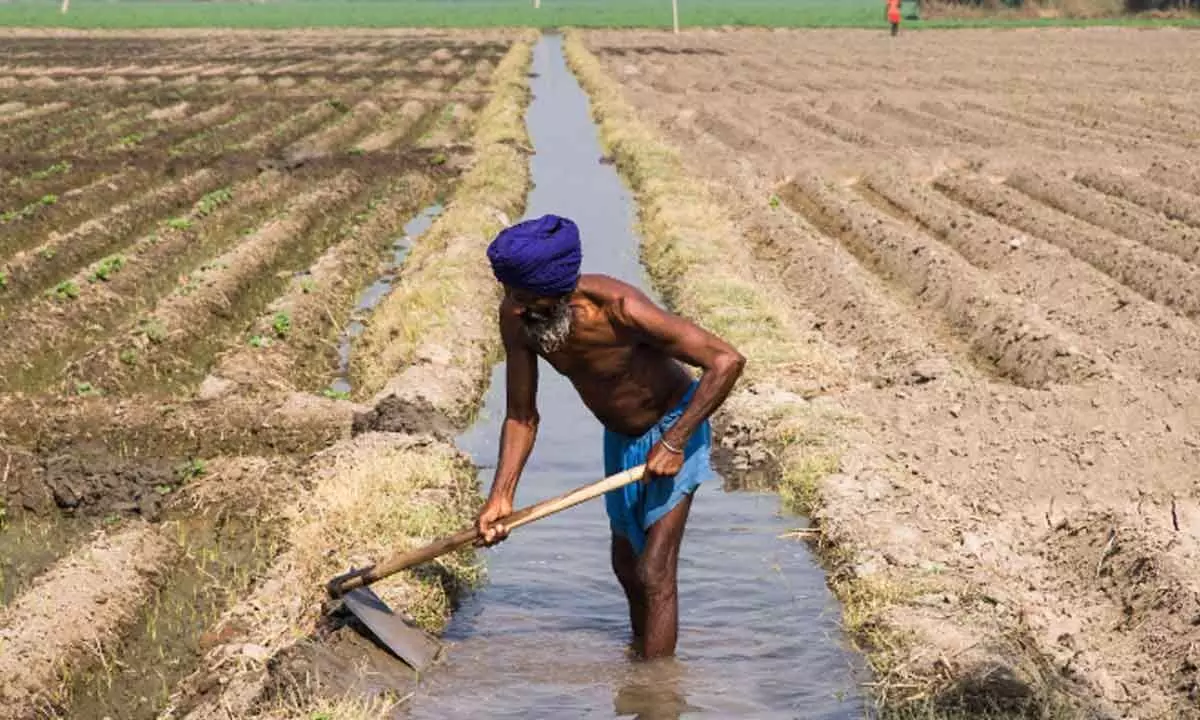Live
- Leading Data Analytics Expert Boosts Financial Services with Advanced Reports and Dashboards for Hedging and Asset Allocation
- 26 Young India Integrated Resi Schools to come up in State
- BGT 2024-25: Bumrah picks five as India take 46-run lead after bowling out Australia for 104
- Thrilling experience: KV students extract DNA from bananas
- BSP to hold maha dharna on Dec 1
- Telangana Jagruthi to submit report to BC Commission
- John Abraham opens up about his new business venture at Indian Racing Festival
- Sri Chaitanya students take out rally
- Gold rates in Delhi today surged, check the rates on 23 November, 2024
- Man attacked by sons for delaying marriage
Just In
95 % of ground water depletion in North


'Problem due to excessive pumping : IIT-GN
New Delhi: North India accounts for 95 per cent of the country's groundwater depletion, according to a study which found that rainfall increase in the future will be insufficient to fully recover the already depleted resources.
The researchers at Indian Institute of Technology Gandhinagar (IIT-GN) also found that groundwater depletion in India will continue until excessive pumping is limited, leading to water sustainability issues in the future. Nonrenewable (unsustainable) pumping has the dominant influence on groundwater storage, causing the water table to drop, they said. "Limiting tube well depth and including extraction costs is beneficial to prevent overexploitation of deep aquifers," said Vimal Mishra, Professor, Civil Engineering and Earth Sciences, IIT Gandhinagar.
"Limiting global mean temperature rise within 2 degrees Celsius can benefit groundwater storage in North India," Mishra told PTI. The study, published recently in the journal One Earth, analysed data from the Central Groundwater Board (CGWB) in-situ groundwater well levels and satellite observations to study groundwater storage variability. The team, including Swarup Dangar, a PhD scholar in Civil Engineering at IIT Gandhinagar, then used global climate model projections having different future warming scenarios for hydrological model simulations.
The researchers also estimated the relative contribution of the groundwater pumping and recharge on the future changes in groundwater storage. They found that the wettest historical and future periods support partial groundwater recovery despite the continuing abstraction from nonrenewable groundwater resources.
The study shows that the projected increase in precipitation may not directly translate to an increase in ground water storage. Rise in potential evapotranspiration (PET) due to the warming climate can offset the positive impact of increase in rainfall. "It is crucial to reduce groundwater depletion in order to maintain sustainable groundwater resources in the region, even if there is an expected increase in precipitation that could help recharge the groundwater," said Dangar. "Even with an increase in precipitation, excessive groundwater withdrawal can lead to the drying or deepening of wells. Additionally, information on the costs associated with deeper groundwater pumping could inform better groundwater use and management practices," Dangar told PTI. The researchers noted that decline in precipitation and the rapid increase in tube wells for groundwater abstraction has resulted in excessive pumping of groundwater, leading to a severe depletion of groundwater resources in North India. In North and Central India, groundwater is mainly used for irrigation of rice and wheat crops during the pre and post-monsoon seasons, they said.

© 2024 Hyderabad Media House Limited/The Hans India. All rights reserved. Powered by hocalwire.com






